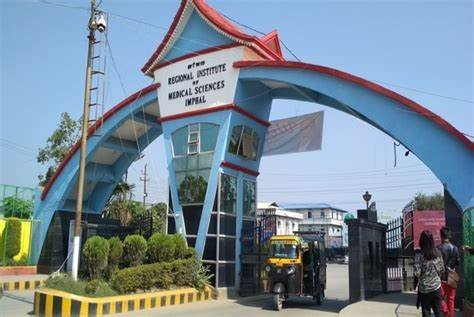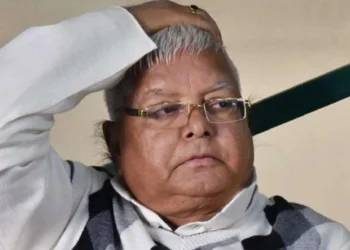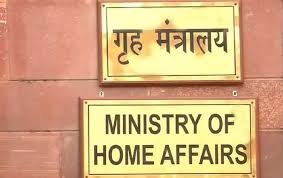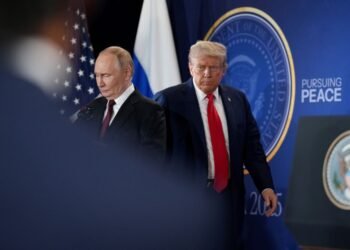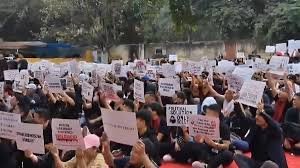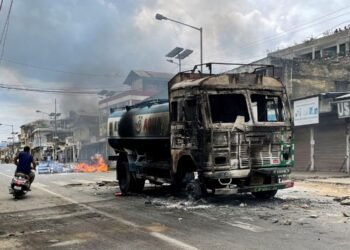By PC Bureau
April 10, 2025
Imphal Valley, the nerve center of Manipur, has descended into a scene of chilling lawlessness as masked gunmen fired on a children’s home, a grenade was lobbed at a prominent doctor’s residence, and a banned militant outfit threatened to bomb a cherished cultural festival. While the valley grapples with this surge of violence, the surrounding hills simmer with their own intra-tribal strife, painting a grim picture of a state teetering on the edge.
Grenade Attack at RIMS Director’s Home
Early Thursday morning, around 6:30 AM, a hand grenade was discovered at the residence of Dr. Guru Aribam Sunilkumar Sharma, Director of the Regional Institute of Medical Sciences (RIMS) in Imphal East’s Bramapur Ruru Aribam Leikai. The device, its safety pin ominously removed, was found by family members, suggesting a deliberate attempt to detonate. A swift response from Porompat Police Station and the state’s Bomb Detection and Disposal Squad neutralized the threat at the site before safely detonating it at the Nongmaiching foothills by 10:00 AM.
Police have registered a case, though no group has claimed responsibility. Major Digvijay Singh Rawat (Retd.), a noted commentator on Manipur affairs, remarked, “The RIMS director and doctors are prime targets for militants in Imphal. This grenade-throwing tradition has persisted for decades. They need police security—urgently.”
The situation in Manipur is dire, with reports of widespread violence and displacement. The allegations of Meitei terrorists, including those from the United National Liberation Front (UNLF-P), taking over Kuki properties are deeply concerning.
Key Issues:
Ethnic Tensions: The… pic.twitter.com/IJievj26Ks
— 𝗞𝗶𝗺 𝗛𝗮𝗼𝗸𝗶𝗽 (@haokipkim128) April 10, 2025
The attack underscores a pattern of intimidation targeting high-profile figures, with extortion often suspected as the motive.
ALSO READ: Ethnic Rivalries Unravel Stability in Manipur’s Hills
Masked Gunmen Target Children’s Home
Just hours earlier, in the dead of night at 1:30 AM on Wednesday, two masked men clad in black unleashed seven to eight rounds of gunfire at the Children Home for Boys in Sagolband Meino Leirak, Imphal West—just three to five kilometers from the Raj Bhavan. Miraculously, no one was harmed, as the 30 residents, including six children from families displaced by Manipur’s ethnic conflict, slept through the assault. The facility, overseen by the state social welfare department under the Mission Vatsalya scheme, became the latest victim of the valley’s spiraling violence.
CCTV footage revealed the assailants approaching the gate, firing indiscriminately, and fleeing into the night. Police suspect an extortion attempt targeting the NGO-run home, a theory bolstered by recent arrests of three individuals, including two militants, for similar activities across Imphal West, Imphal East, and Kangpokpi districts in the past 24 hours. Local residents staged a sit-in protest on Wednesday, demanding justice, while the home’s management and the district child protection unit filed an FIR.
The incident has reignited debate over the Armed Forces (Special Powers) Act (AFSPA). Despite the Union Home Ministry’s reluctance to reimpose it in 13 valley police stations amid rampant lawlessness, Meitei student groups like AMSU, MSF, and DESAM continue to push for its repeal in their strongholds—a stance critics call out of touch with the ground reality.
ALSO READ: Debate Erupts in Manipur Over Prez Murmu’s Shawl in Vienna
KCP-MC Bans Thabal Chongba: A Cultural Assault
Adding fuel to the fire, the Kangleipak Communist Party (KCP-MC) Progressive, a proscribed militant outfit, issued a chilling edict banning Thabal Chongba, the vibrant Manipuri dance central to the Meitei community’s Yaoshang festival. The group threatened bomb attacks if defied, casting a shadow over a tradition that blends Holi’s exuberance with local flair. While the KCP hasn’t publicly detailed its motives, analysts suggest this could be moral policing, a bid to disrupt normalcy, or a power play in their decades-long separatist campaign against the Indian state.
Historically, the KCP and its factions have used violence—extortion, bombings, and assassinations—to assert control over Manipur’s social and political fabric. Targeting Thabal Chongba, a communal celebration tied to the lunar calendar (typically March or April), amplifies their reach during a time of mass gatherings. The ban fits their pattern of sowing fear to enforce authority, though it’s unclear if this reflects broader ideological shifts or a reaction to recent events.
A Valley Under Siege, Hills in Turmoil
The past 24 hours have laid bare Imphal Valley’s descent into chaos. Posts on X from Kuki Inpi spokesperson Kim Haokip in Delhi highlight parallel allegations of Meitei groups, including the United National Liberation Front (UNLF-P), seizing Kuki properties—homes and businesses—amid the unrest. “Local and mainland businessmen describe it as living under terrorism, akin to being held captive,” Haokip wrote, urging government intervention, dialogue, and support for displaced communities.
Meanwhile, the hills remain a cauldron of intra-tribal conflict, with Kuki-Zo factions locked in their own struggles, further fracturing Manipur’s fragile peace. The state’s ethnic fault lines—Meitei versus Kuki, valley versus hills—have rarely been more exposed, with each incident amplifying distrust and despair.
ALSO READ: Kuki-Zo Warn Meitei Against Chinga Kaba Buffer Breach
As investigations unfold, the grenade attack, orphanage shooting, and dance ban signal a troubling escalation. Police data reveals 80 extortion cases in the last four months, alongside a spike in arms and drug smuggling, often linked to groups like the KCP.
For now, Imphal Valley holds its breath, caught between the echoes of gunfire, the threat of bombs, and the silencing of its cultural heartbeat. The question remains—can Manipur’s unraveling be stitched back together, or is this merely the prelude to a darker chapter?


